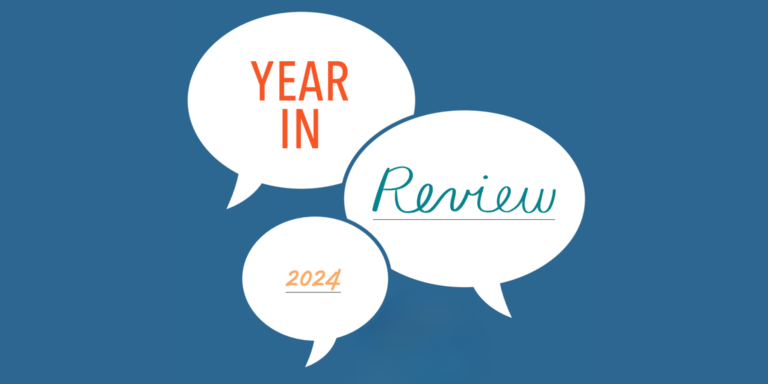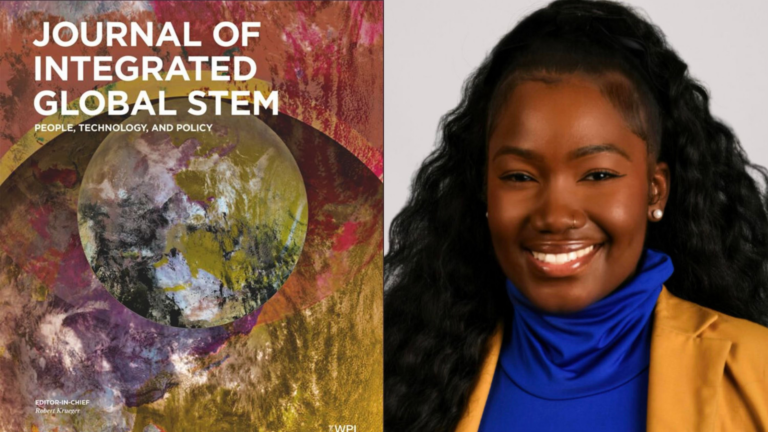
At Siegel Family Endowment, we have long made grant investments based on the potential of people and ideas. As a result, we’ve worked with partners in many cities across the country on a wide range of issues. In some cases, we’ve been able to facilitate collaboration and learning between grantees based in the same location. For example, the New York Hall of Science in Queens and the Consortium for Research and Robotics in Brooklyn have provided cross-tours of one another’s spaces for students. Additionally, some place-based partners have had overlapping goals that enhanced one another’s work, such as MASS Design and the Community Foundation of the Hudson Valley – both of which are based in and focus on strengthening the city of Poughkeepsie. However, throughout this work, we have yet to build a cross-portfolio, place-based investment strategy in one location alone. Atlanta is changing that for us.
In Atlanta, we’ve seen a convergence of people, ideas, and opportunity across all three of our interest areas. There is tremendous innovation happening in the city’s education systems, as well as progress in the workforce and pivotal infrastructure development underway. We also recognize the urgency of this moment — Atlanta is on the precipice of explosive growth and it’s essential this boom be stewarded towards advancing equity for generations to come. As these factors align, we’ve decided to harness this unique moment by working in Atlanta in a more articulated and strategic way.
And because this is new for us, we want to get it right. We’re neither the experts nor the only entity interested in the health and future of this city. Our goal is to be additive to the conversation and the work. This piece lays out our vision, plans, and hopes for our work in Atlanta. We hope that our transparency invites feedback, partnership, and collaboration from those who know Atlanta best.
We sat down with Joshua Elder, Director & Head of Grantmaking, to chat about SFE’s work in the Atlanta area and plans for the future.
Why Atlanta?
While long known for its vibrant culture, music, and arts scene, as well as its leadership in the fight for civil rights and equity, Atlanta has rapidly become one of our country’s fastest growing tech hubs. With major companies like Google and Microsoft, along with a growing number of startups, moving to the city to access its wealth of up-and-coming Black talent, Atlanta has the exciting potential to redefine what an urban tech hub could look like. And while this moment holds great promise, it’s essential that steps be taken to ensure this boom actually creates a tech ecosystem that is more diverse, equitable, and inclusive — rather than perpetuates inequality in yet another city.
We — along with so many of our peers and partners — see a major opportunity to help bolster local organizations starting to think through how to ensure this tech explosion benefits all Atlantans for generations to come. By funding community-rooted organizations that are working to connect local residents with these new jobs through education, workforce programs, and infrastructure development, we aim to support the creation of a local talent pipeline to make sure Atlantans are able to capitalize on this massive opportunity.
We first began working with grantee partners in Atlanta in 2018 as early supporters of The Constellations Center for Equity in Computing, a partnership between Georgia Tech and the Atlanta Public School system to foster equitable access to computer science education across local high schools. An important piece of our learning portfolio, the Center has already expanded access to computers to over 300 students in underserved communities, and helped cultivate a local talent pipeline for these new jobs. We are encouraged by this growth and excited to double down on our work in the city with new investments across all three of our interest areas.
What unique expertise does Siegel bring to this work?
First and foremost, we hope to bring our unique approach to grantmaking – one that is based on community relationships, trust, and support for new and innovative ideas that many may shy away from. Our collaborative and flexible approach to partnerships means that while we work closely with grantees to drive progress towards our shared goals, we ultimately give partners the autonomy and space to serve Atlantans in the way they know best. Instead of grounding our investments in our own agenda, we seek to learn and understand the nuances of issues facing Atlanta today and support the initiatives that are putting community-members first.
Our work to understand and shape the impact of technology on society also means we’ve seen first-hand the many ways that explosive tech growth can be correlated with inequity, even in the most well-meaning of circumstances. Having previously partnered with programs working to address similar situations and located in comparable cities, we hope to offer lessons learned that might be adapted to and inform the Atlanta context. Previous and current grantees like The Knowledge House, ICA Fund, Braven, and the Center on Rural Innovation have vast experience working to build local talent pipelines, foster community entrepreneurship, and close the racial wealth gap – all of which are objectives that our partners in Atlanta share.
As a national funder, we also hope to leverage our existing relationships, connecting together the myriad of stakeholders – from local philanthropies to larger and more influential companies – that might be interested in working together to amplify on-the-ground efforts. And with a lens to equity, all of this work is uniquely informed to ensure it improves outcomes for all Atlantans, lifting up proximate leaders and those in need.
How do you plan to work with others?
As a national funder based in New York City, we know that we are far from experts on the multitude of challenges facing Atlanta today. That’s why — from the onset of our work in the city — we’ve prioritized building relationships with crucial stakeholders (from city leadership to students and families), hearing from community members about key issues, and meeting with those on ground to establish trust.
This process takes time, but we know that building these bridges is one of the most critical pieces to our work. Rather than parachuting in and out, which can cause more harm than good, we are determined to understand from others where we can be additive to the current ecosystem and integrate accordingly.
Through our partners at Reimagine America’s Schools (RAS), we’ve been fortunate to begin collaborating with Clayton County and Atlanta Public Schools to fuel the redesign of how school buildings can foster the community’s vision for what they want out of their education system. Learn more and watch RAS’s latest school design summit here.
We will continue to ground our work in the recommendations and advice of those who know Atlanta best. What sandboxes would find us most additive and which should we stay out of? How can we ensure whatever we’re putting into action is sustainable for the long term and won’t repeat a cycle of harm? By collaborating closely with local-based organizations, we hope that we are setting ourselves and our grantees up for success to collectively build a better city.
What do you hope to see in a few years – both for your partners and yourselves?
When you consider the systemic injustices that marginalized communities in and around Atlanta have faced over the years, it’s clear that progress will take long to achieve. With this in mind, over the coming years, my hope is that work of our grantees doesn’t just continue as is, but expands exponentially. Throughout this process, I hope our grantees continue to apply a growth mindset to their work — celebrating wins, learning from mistakes, and sharing experiences with their peers to build a more resilient city.
As for Siegel, I hope in a few years that we have been able to establish trusting and productive relationships throughout Atlanta, as well as in other cities across the country where we currently don’t have as strong of a presence. As we do so, I hope our organization continues to give the same care and thoughtfulness to how we approach giving both on the national and local stages. When we do make the inevitable mistakes, I hope we continue to act with transparency and use these instances as learning opportunities to improve our own practices both as givers and partners.
What about your background makes you excited for this work?
Growing up in rural Virginia as a person of color, education was the key that unlocked opportunities I never thought possible for both myself and my family. So after graduating college, I decided to become a teacher myself to help improve outcomes for underserved students coming from similar backgrounds to my own. This small decision shaped my entire life course — taking me from public schools in Richmond, VA to charter schools in North Philadelphia and teaching and leading schools in South Africa — and opened my eyes to just how broken education systems around the world are.
Knowing first-hand the tremendous impact that education has had on my life, and how it is now failing so many students, I have since centered my career around improving what is broken in the system, particularly when it comes to expanding equitable access to foundational skills such as computational thinking, computer science and data science. The growth happening today in Atlanta’s tech sector is so exciting for both the city and the tech industry in general, but it’s essential we ensure the home-grown talent of the area has the skills needed to access these new opportunities. By funding grantees in education, as well as workforce development and infrastructure building, I am hopeful we can make a notable impact on the city and propel diverse students — just like myself many years ago — to achieve their wildest dreams.
What’s next?
We’re continuing to get to know local leaders, listen to ideas, and search for partners whose work might bring about transformative change for folks in Atlanta and beyond. For example, after getting to know Mayor Dickens, we learned that young people need easy, fun and motivational access to a broad array of Atlanta experiences with the aim of lifting up their aspirations for their own futures and helping them get there. As a result, we just awarded a $300,000 two-year grant to Passport Atlanta, a mobile app that exposes students to curated journeys across Atlanta that empower, enable, and incentivize them to explore their city. We’re inspired by this approach and see its model serving not only young people in this city, but also replicating in other cities.
If you’d like to get in touch with us, please contact us here.





